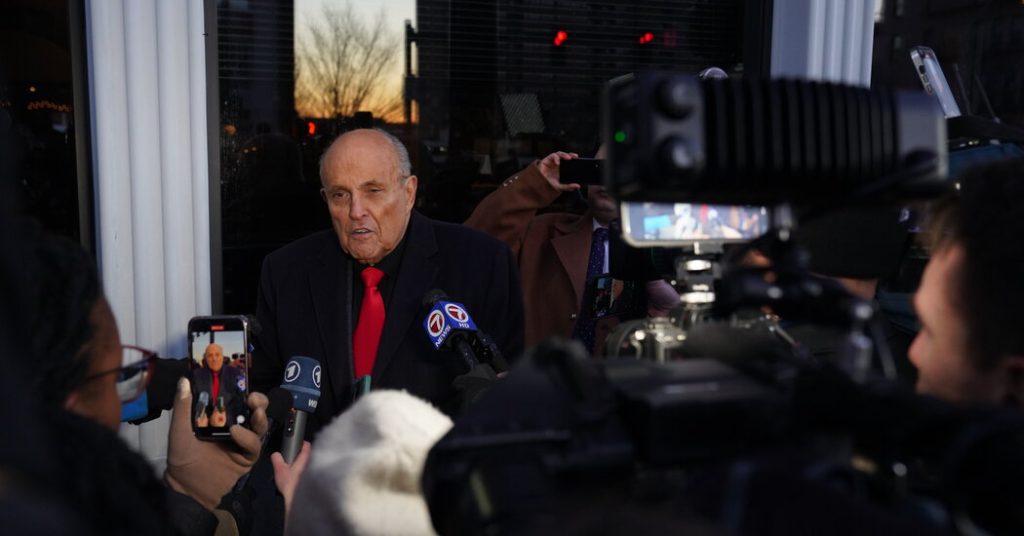In Arizona, Rudolph W. Giuliani and 10 other allies of Donald J. Trump were arraigned for their involvement in attempting to keep Trump in power after he lost the 2020 presidential election. A total of 50 people, including Trump himself, now face charges related to election interference in multiple states. Many Trump allies have already pleaded guilty or reached cooperation agreements in cases in Georgia and Michigan. The defendants, including Giuliani, face charges of conspiracy, fraud, and forgery, and have all pleaded not guilty. Additional defendants, including Boris Epshteyn and Mark Meadows, will be arraigned next month.
The first to be arraigned in the Arizona case was John Eastman, a lawyer who helped devise a plan to deploy fake electors for Trump in states he lost. Trump, listed as “Unindicted Co-conspirator 1” in the indictment, has not been charged in the Arizona case. Giuliani, who was the last defendant to be served a notice of his indictment, initially evaded efforts to serve him but was eventually served after threatening that the indictment should be dismissed if he could not be found. Giuliani has claimed he did nothing wrong, as have other defendants, and their lawyers argue that the case has numerous flaws and is merely a political move.
Kris Mayes, the Arizona attorney general, secured indictments of all 11 people who acted as fake Trump electors in Arizona, as well as seven Trump advisers. The legal battle over Trump’s efforts to overturn the 2020 election results is expected to continue, with trials unlikely to conclude before the 2024 election. Giuliani was directly involved in efforts to reverse Trump’s loss in Arizona, pressuring officials and making claims of fraud that were not substantiated. Rusty Bowers, a former Arizona House speaker, testified that Giuliani and Trump pressured him to have the state legislature review the Arizona vote, but he ultimately refused to interfere with the election results.
Other defendants, such as Kelli Ward, became involved in efforts to delay certifying election results and act as fake electors following the 2020 election. Defendants in the various cases have generally not challenged evidence showing Trump and his allies’ efforts to remain in power, instead arguing that their actions were protected by the First Amendment or immunity, or that they were preparing for the possibility that legal challenges could overturn Biden’s victory. Lawyers for defendants like the Wards have claimed that they were exercising their constitutional rights to protest and seek redress from their government, and their actions should be celebrated rather than criminalized. The legal battles and investigations related to the 2020 election are ongoing and are likely to continue for some time.








